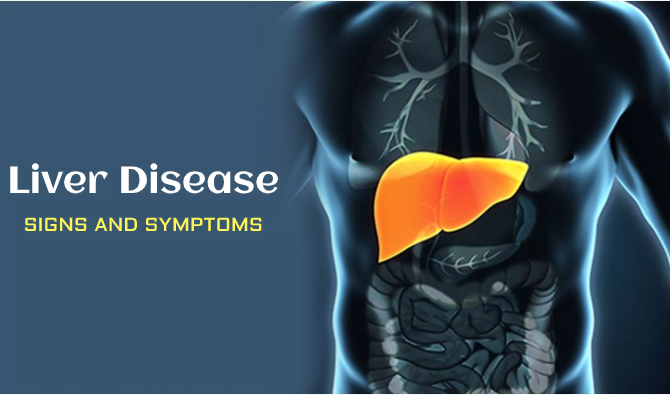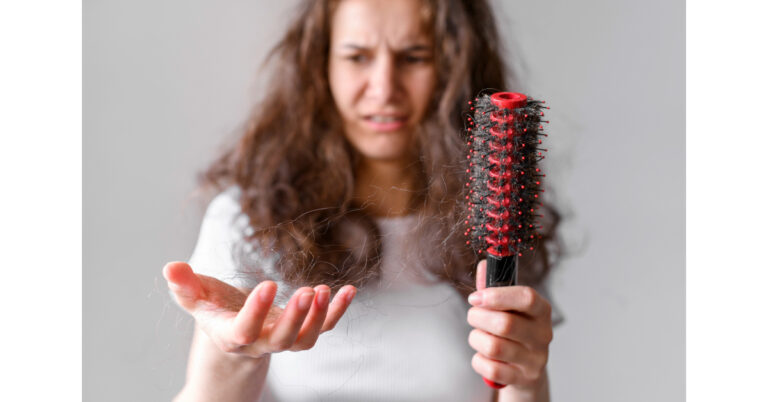Hair Fall: It’s more than just a cosmetic concern
Hair are important part of the body that are derived from the ectoderm of the skin and play a vital role in the personality of a human being as well as very important for his physical well-being. There is a saying – “Our face is the mirror of our personality and we maintain this personality with our hairstyle”. Although, hair are dead parts with no nerve connection, they are affected by changing lifestyles. There are so many hair-related problems like dandruff, pigmentation, greying, fizziness, etc. and most importantly, hair fall. People throughout the world spend lots of money to get rid of hair fall but all in vain.
The Father of Medicine, Acharaya Charaka considered this disease under the category of Shiro Roga ( Disease of the head ) and it is known as ‘Khalitya’, which means hair fall (Alopecia). On the other hand, Father of Surgery, Acharaya Shushruta, considered this disease under ‘Kshudra Rogas’, which means diseases related to the skin.
In modern science, hair fall is termed as Alopecia or Baldness. It is a slow process but is affecting the young and the old, at the same rate now. It is most commonly seen in men, that too between the age group of 18-40 years.
Do you know?
- People lose 50% of their hair before it is apparent to anyone
- 40% of the female population have female pattern hair loss by the time they reach their menopause
- 50% of the male population have male pattern hair loss by the age of 50
- Heredity is the main and the most common cause of hair loss and hair fall due to this is known as androgenic alopecia.
- Losing 150 hair per day is completely normal. Most of the hair you lose is during shampooing.
- Approximate 80 million people in the US suffer from hair fall.
The life cycle of a hair
Each hair follicle in our body has its own life cycle i.e., influenced by various factors like disease, age, environment, water and eating habits, etc. The life cycle of hair has 3 phases:
- Anagen
- Catagen
- Telogen
- Anagen: This is the phase of the hair, which lasts for 2 to 8 years. In this phase, active growth of hair occurs.
- Catagen: This is the phase that lasts for 2 to 3 weeks after anaphase ends. In this phase, follicles of our hair shrink and hair growth is a slow process.
- Telogen: This phase of the lifecycle of hair lasts for 2 to 3 months. This is the resting phase of hair in which hair falls and new hair replaces it and the cycle starts again.
Types of Hair loss or Alopecia:
- Androgenic Alopecia: This is a genetic condition that affects both men and women equally. In men, hair fall starts as early as in the early 20s. This condition results in gradual hair fall from the crown or frontal scalp region and is characterized by receding hairline. This condition in men is called “male pattern baldness”. In women, this condition occurs in the 40s and mostly from the crown region and is known as female pattern baldness.
- Involutional Alopecia: In this condition, maximum hair follicles go in telophase i.e., resting phase that results in shorter and fewer hair. This type of alopecia gradually happens with age.
- Alopecia Areata: In this type of alopecia, hair fall occurs in a patch in young adults and children. This kind of hair fall starts suddenly and may result in complete baldness i.e., alopecia totalise.
- Alopecia Universalis: In this type of alopecia, hair fall occurs from the whole body including intimate areas, eyebrows, eyelashes, etc.
- Trichotillomania: This is a psychological disorder mostly seen in children in which they pull out their hair.
- Telogen Effluvium: This condition is characterized by temporary hair fall in which most hair follicles go into the telogen phase at the same time.
- Scarring Alopecia: In this alopecia, hair fall results from inflammatory skin conditions and from various skin disorders like lichen planus or lupus etc which results in permanent hair loss. The use of hot combs and too tight woven hairs also result in this type of condition.
- Chemotherapy-induced Alopecia: This type of hair fall occurs due to the side effects of chemotherapy.
Causes of Hair Fall:
Ayurvedic point of view:
- Pitta Vardhak Ahara-Vihara (Food and lifestyle that increases Pitta in the body)
- Hina, Mithya and Atiyoga of Ahara, Nidra and Bhramcharya (complex, over-imagination, over-indulgence in food, sleep, and celibacy)
- Virudh ahara (Incompatible food)
- Atapatisevana (Exposure to hot weather)
- Dushtama (Indigestion)
- Himahara (Intake of cold food)
- Rajahsevana (Exposure to dust)
- Mrjadvesha (Improper cleaning of head)
- Abhyanga dvesha (Non-application of oil on the scalp)
- Amlahar-atisevana (Excess intake of sour food)
- Atimaithuna (Excessive sexual indulgence)
- Atiseetambusevana (Excess intake of cold water)
- Diva Swapna (Sleeping during day)
- Bashpanigraha (Suppression of tears)
- Guru Aahara (Intake of heavy food)
- Harit Shaak Ati Sevana (Intake of green leafy vegetables in large amounts)
- Manasantapa (Mental agony)
- Pragvata (Exposure to East wind)
- Rodana (Excessive weeping)
- Vega Dharana (Suppression of urges)
Iatrogenic Factors:
- Diseases like Pandu (Anemia), Dheeraga Javara (Prolonged Fever), Darunaka (Seborrhoeic Dermatitis) etc lead to hair fall.
- Ati-sweda-karma (Excessive steam bath or steam bath or exposure to direct heat)
Modern point of view:
The most common Causes of Hair Fall are:
- Sebum
- Emotional strain
- Stress
- Aging
- Nervous disorders
- Anaemia
- Dihydrotestosterone i.e the derivative of the male hormone testosterone
- Poor blood flow
- Hormonal imbalance
- Polluted environment
- Injury and impairment
- Toxic substances
- Deficiency of Vitamin E, Vit. B12, Vit. B6, Folic acid, Iron, Biotin, and Zinc
- Thyroid dysfunction
- Radiotherapy and Chemotherapy
- Rheumatoid arthritis
- Use of anti-hypertensive drugs, contraceptive pills, and anti-diabetic drugs
- Over-use of hair colors, bleach, and shampoo containing selenium
- Long term use of steroids
Hair Fall Signs and Symptoms:
- Falling out of hair during or after washing, combing, or even on gentle tugging. This results in the overall thinning of hair.
- Excessive fatigue
- Painful and itchy scalp
- Random bald spots
- Scalp acne
- Brittle nails
- Muscle ache
- Hair loss from eyebrows and eyelashes
- Receding hairline
- Hair thinning
Ayurvedic Concept of Hair Fall :
According to the Father of surgery, Acharya Shusruta, there are three stages of hair fall :
- Indralupta i.e Hairfall in patches (Alopecia areata)
- Palitya i.e Greying of hair
- Khalitya i.e Alopecia totalis
Hair fall is considered as a Pitta dominant Tridoshaja Vyadhi.
According to Ayurveda, hair fall pathology is:
- When Pitta Dosha in our body gets vitiated with Vata dosha, both vitiated Doshas go into Romkupam i.e hair follicles, and cause hair fall.
- When Rakta (blood) gets vitiated (contaminated) with Kapha Dosha, it results in clogging of hair follicles, which results in non-growth of hairs.
Ayurvedic Treatment of Hair Fall
Both Abhyantara (internal) or Bahya (External) Chikitsa (treatment) is described for hair fall in Ayurveda.
- Shirodhara (Ayurvedic procedure in which medicated oil is slowly and steadily dripped over forehead)
- Nasya (Ayurvedic procedure in which instillation of medicine (in oil form) is done through nostrils)
- Raktmokshan (Blood-letting therapy)
- Use of Snehna-Swedna (Oleation and Sudation therapy)
- Ushanishaka (Use of warm oval cap)
- Dhoompan (Procedure in which vapour of medicated powder is inhaled and exhaled through mouth)
- Rasayana Chikitsa (Rejuvination therapy)
- Prachana (Procedure in which multiple pricks are made over diseased area by sharp and pointed instrument like needle etc.)
Herbs to stop Hair Fall:
- Amla (Embelica officinalis)
- Fenugreek (Trigonella foenum graecum)
- Curry leaves (Murraya koenigii)
- Bhringraj (Eclipta alba)
- Malati (Aganosma heynei)
- Gotu kola (Centella asiatica)
- Yashtimadhu (Glycyrrhiza glabra)
- Nilini (Indigofera tinctoria)
- Giloy (Tinospora cordifolia)
- Aloe vera (Aloe barbadensis)
- Tulsi (Occimum sanctum)
- Sesame (Sesamum indicum)
- Coconut (Cocos nucifera)
- Neem (Azadirachta indica)
- Rosemary (Salvia Rosmarinus)
Pathya and Apathya (Dos and Dont’s)
- Avoid the use of water in the affected site till growth starts
- Avoid exposure to windy, dusty and polluted environment
- Avoid sharing combs and hair brushes
- Change cloth, bedsheet, pillow cover, etc regularly
- Include lots of fruits and vegetables in your daily diet
- Avoid reheated food, black gram, fermented food, curd, papad, etc.
- Include Mugad and Saindhav in your diet
- Avoid incompatible food like fish with milk or cold drinks with oily food
- Add Dhaanya (grains), Ghrita (Ghee), Dugdha (Milk), Shigru (Moringa oleifera), vaastuka (Spinacia), Patola(Trichosanthes dioica), Kaarvellaka (Momordica charantia ), Draksha (Vitis vinifera), Amalaki (Emblica officinalis), Maatulunga (citrus medica ), Naarikela (Cocus nucifera ) in the diet.
When to see a doctor:
- Unexplained or sudden hair fall
- Itching, pain, or redness in the scalp
- Hair fall accompanied with other symptoms like fatigue, swollen lymph nodes, heavy menstruation bleeding.
Conclusion:
Hair adds to the personality of a human. Ayurveda very well defines the cause and management of hair-fall without any side effects. Yukti Herbs has numerous organic herbal formulations in the form of herbal powders, capsules, tablets, hair oil, nutritional health supplements and hair serum to assist you in this condition of hair fall. We also guide you on many herbal recipes which you can do yourself at home to stop the hair fall.
Following a balanced diet & lifestyle further gives you quick recovery from this condition. Our experts can guide you about Diet & Lifestyle Changes required to beet this health condition wisely and timely. You can always consult us for any of your health inquiries through Phone, WhatsApp and Email. You can visit our clinic too to get a consultation from well qualified Ayurvedic Doctors.











